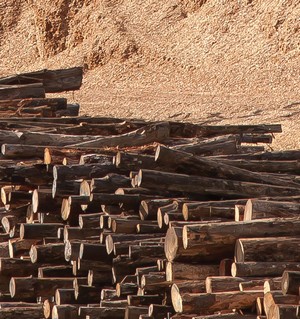Going the full circle
 Pulp and paper mills are large producers of organic and inorganic waste, much of which is either burnt for energy, vermicomposted or landfilled. Our Clean Technologies Team has been working with four pulp and paper companies and project management firm Sinclair Knight Merz to explore alternative solutions for the solid waste that is currently landfilled.
Pulp and paper mills are large producers of organic and inorganic waste, much of which is either burnt for energy, vermicomposted or landfilled. Our Clean Technologies Team has been working with four pulp and paper companies and project management firm Sinclair Knight Merz to explore alternative solutions for the solid waste that is currently landfilled. Waste wood at these sites is burned and the ash generated is rich in the micronutrients calcium, magnesium and potassium. The team is exploring additional uses for the ash such as in fertiliser and aggregate.
Ash applied directly to certain forest species from a particular age has been shown to increase tree volume. The ash is also being used as a liming agent, receiving interest from local fertiliser and compost companies as a potential resource.
“The project has increased awareness at the mills of the impact their energy systems have on the environment,” says Research Leader Dr Kim McGrouther. “The mills are now looking more closely at how they operate their boilers, and some of the mills are already employing the new initiatives. This awareness is also extending to other ash-generating industries.
“There is the potential to reduce solid waste going to landfill annually by approximately 25,000 tonnes. Not only will this considerably reduce the mills’ landfill costs, it also has a huge benefit for our environment by putting the micronutrients back into the ecosystem.”
Contact Dr Kim McGrouther at: Show email
